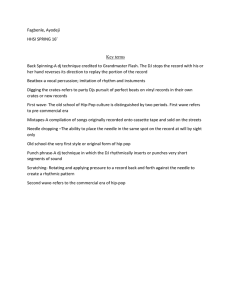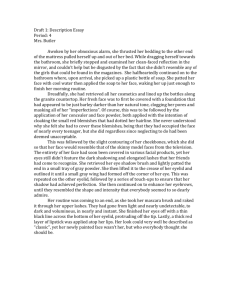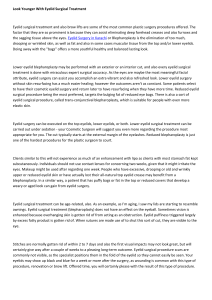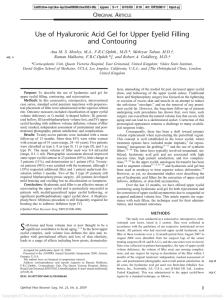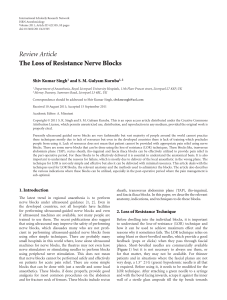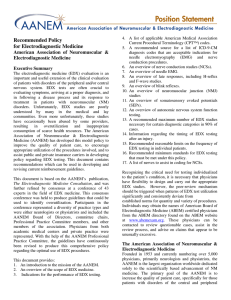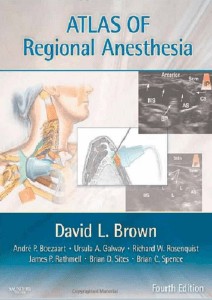Table1: Describing the Procedure For the Auriculopalpebral Nerve Block Nerve Block Landmarks
advertisement
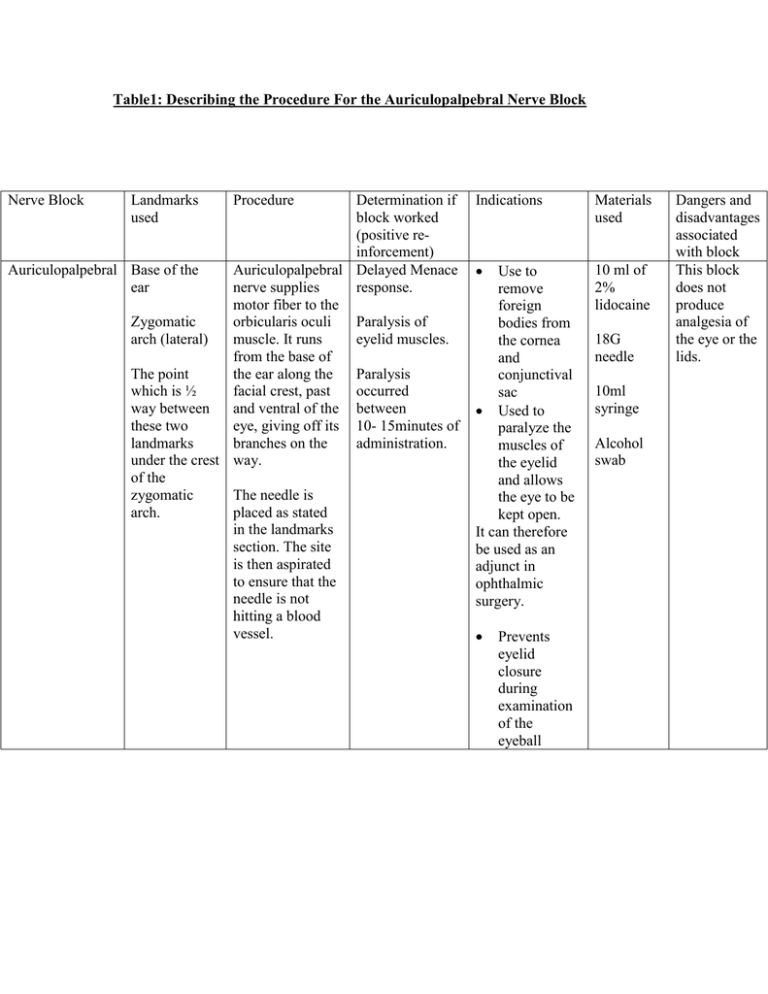
Table1: Describing the Procedure For the Auriculopalpebral Nerve Block Nerve Block Landmarks used Procedure Determination if block worked (positive reinforcement) Auriculopalpebral Base of the Auriculopalpebral Delayed Menace ear nerve supplies response. motor fiber to the Zygomatic orbicularis oculi Paralysis of arch (lateral) muscle. It runs eyelid muscles. from the base of The point the ear along the Paralysis which is ½ facial crest, past occurred way between and ventral of the between these two eye, giving off its 10- 15minutes of landmarks branches on the administration. under the crest way. of the zygomatic The needle is arch. placed as stated in the landmarks section. The site is then aspirated to ensure that the needle is not hitting a blood vessel. Indications Materials used 10 ml of 2% lidocaine Use to remove foreign bodies from the cornea and conjunctival sac Used to paralyze the muscles of the eyelid and allows the eye to be kept open. It can therefore be used as an adjunct in ophthalmic surgery. Prevents eyelid closure during examination of the eyeball 18G needle 10ml syringe Alcohol swab Dangers and disadvantages associated with block This block does not produce analgesia of the eye or the lids.


